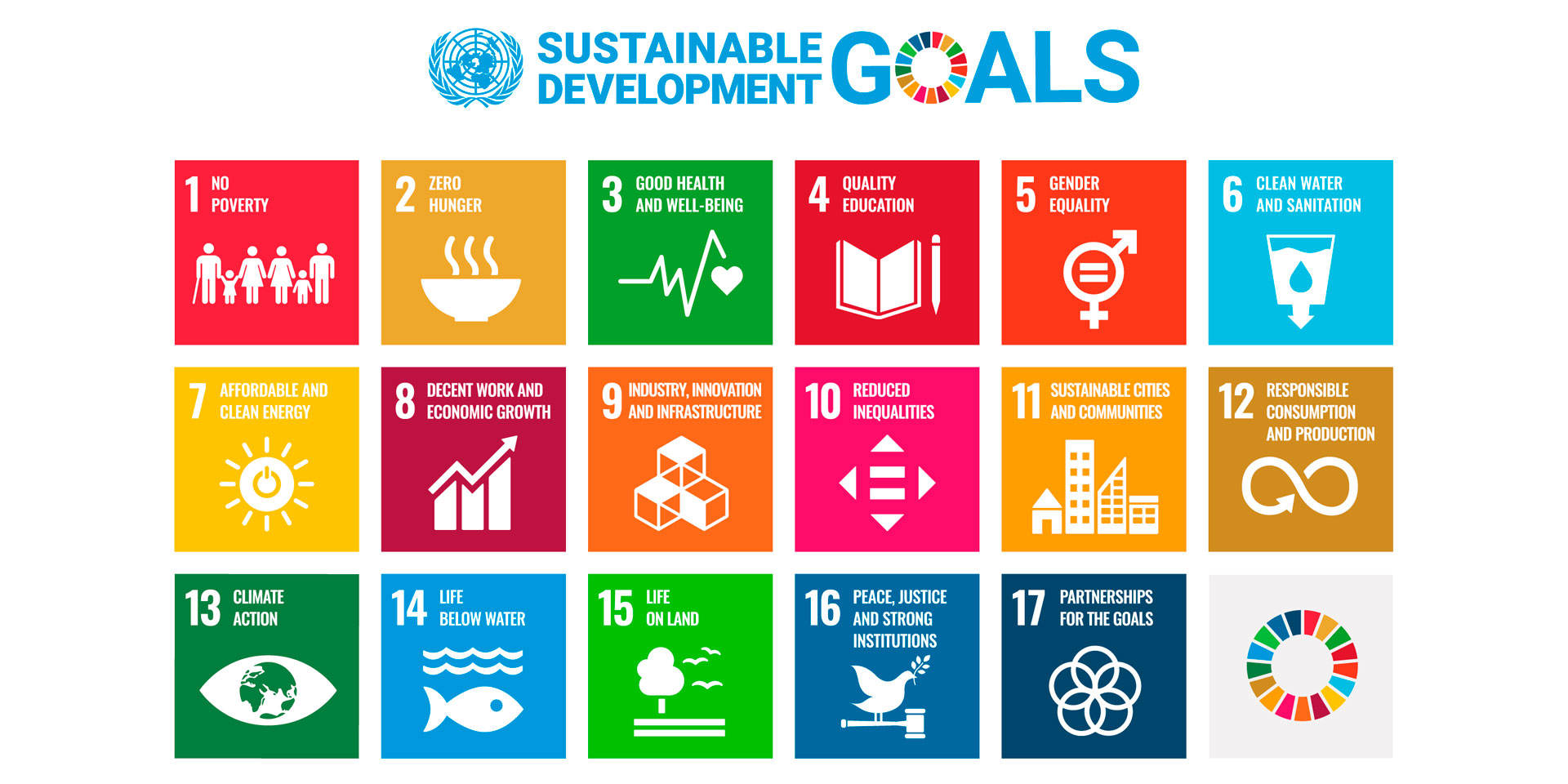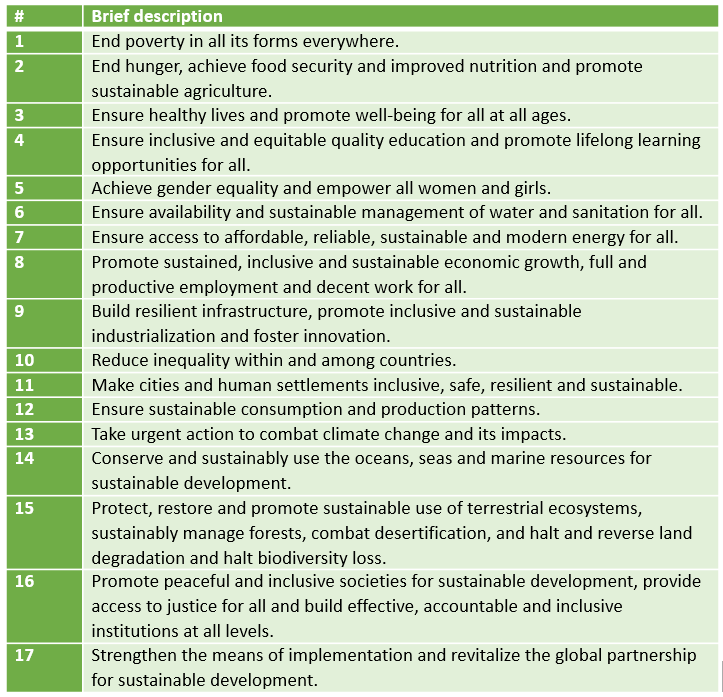What are the Sustainable Development Goals (SDG)?
Executive Factsheet
Adopted by the General Assembly of the United Nations in 2015, the 17 “Sustainable Development Goals” (SDGs) are the layout to achieve a better and more sustainable world for all by 2030. These goals are a call for action to address a series of global challenges, such as: poverty, inequality, climate, environmental degradation, and justice. A growing number of corporations use SDGs to orient, prioritize, and report on their CSR activities.
Upload the PDF: What are the SDGs?
What are the SDGs?
Adopted by the General Assembly of the United Nations in 2015, the 17 Sustainable Development Goals (SDGs) are the layout to achieve a better and more sustainable world for all by 2030.
The SDGs are an expanded version of the eight Millennium Development Goals (MDGs), which guided global action to reduce extreme poverty as from 2000 to 2015.(1)
For the first time in history, the international community was able to define a global and comprehensive sustainable development agenda including both social objectives (built on the MDGs) and environmental goals (in continuation with the Rio Declaration of 1992 and subsequent COP summits).
The first and most prominent of the SDGs is the stated intent to eradicate all forms of poverty, in all regions of the world.
The table on the right side of this leaflet provides a brief overview of the 17 SDGs.

What is the intention behind the SDGs?
The SDGs are an integral part of the 2030 Agenda for Sustainable Development, which aims at fostering a more sustainable future.*
This agenda intends to counteract global problems, such as poverty, inequality, climate, environmental degradation, and justice.
It is built on the assumptions that:
- Economic prosperity, social progress and environmental protection go hand in hand and must be brought together. Thus, all the SDGs are interconnected and have to be jointly pursued.
- A collective effort involving various actors (governments, corporations and the civil society) is needed to transform our global society. The SDGs are seen as a means to federate the efforts of these different actors around a common aspiration. The 17th SDG is crucial in this regard: It explicitly stresses the need for novel multi-stakeholder and cross-sectorial partnerships. Without this, the ambition of solving the world’s grand challenges will be impossible to achieve.
How does CSR relate to the SDGs?
The 2030 Agenda for Sustainable Development explicitly invites the business sector to contribute to the achievement of the SDGs.*
The 17 Sustainable Development Goals (SDGs)

Source: Sustainable Development Goals website
Corporations are encouraged to focus on the SDGs they can contribute to most effectively, to define SDG-related goals, and to publicly announce their commitment to the SDGs by integrating it into their CSR reporting.**
For corporations, the SDGs represent an opportunity to put their CSR engagement into a broader perspective, by orienting it towards the resolution of grand societal and environmental challenges.
Corporations are encouraged to focus on the SDGs they can contribute to most effectively, to define SDG-related goals, and to publicly announce their commitment to the SDGs by integrating it into their CSR reporting.**
For corporations, the SDGs represent an opportunity to put their CSR engagement into a broader perspective, by orienting it towards the resolution of grand societal and environmental challenges.
In fact, there is a clear emerging trend in linking CSR activity to the SDGs. In 2017, i.e. only two years after the official adoption of the SDGs by the UN, already 43% of the world’s 250 revenue-largest firms referred to the SDGs in their CSR reports.***
* Source: United Nations. Transforming our World: The 2030 Agenda for Sustainable Development. Retrieved from sustainabledevelopment.un.org.
** Source: GRI, United Nations Global Compact and WBCSD. SDG Compass: The guide for business action on the SDGs. Retrieved from: sdgcompass.org.
*** Source: The KPMG Survey of Corporate Responsibility Reporting 2017.
|
Reference
|